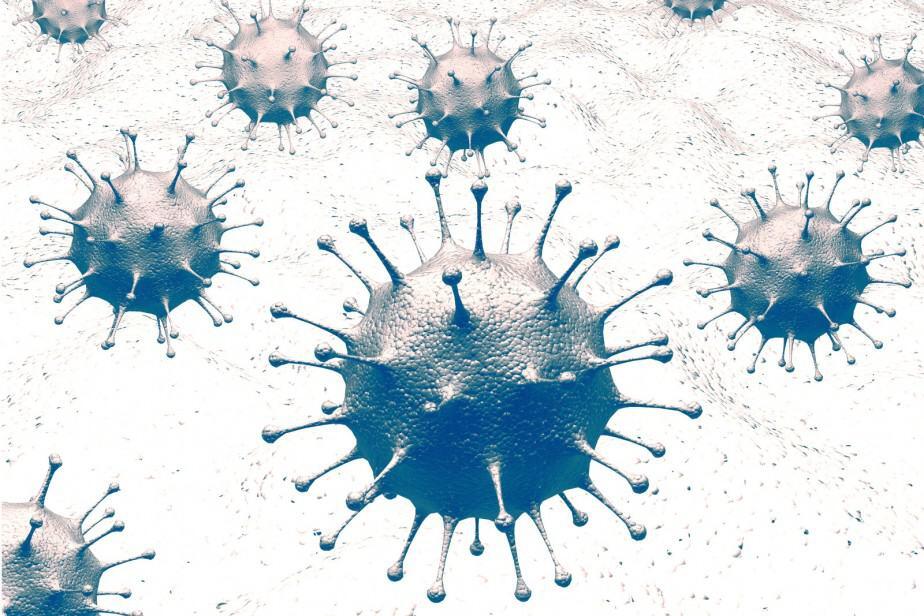Having a baby is always a stressful event for the mother and the family. Delivering the baby during the epidemic spread of coronavirus adds to that anxiety tremendously. I want to explain a few things to prospective parents and their families, hoping that it will help them go through these difficult times.
Attention: Coronavirus COVID-19 epidemic is a new development for all doctors. Every day we acquire more information about this infection. I strongly encourage you to check for the latest and most up-to-date information on the CDC website and with your healthcare provider.
Background information
What is COVID-19?
COVID-19 is a respiratory virus that belongs to the family of coronaviruses. You may have heard in the last ten years about other epidemics of coronaviruses such as SARS or MERS. Those two coronaviruses were capable of causing higher mortality than COVID-19. They were not spreading that quickly from person to person, and we were able to control those two infections.
We do not know much about the new coronavirus COVID-19 yet. It was reported that it probably originated in China in the province of Wuhan and that humans acquired it through the transmission and mutation of the virus present in wild animals sold in food markets.
COVID-19 is a respiratory virus. It passes from one person to the other through the respiratory droplets created during coughing and sneezing and through touching contaminated surfaces on which virus can stay alive for many hours. We do not know for sure if one can get infected by swallowing it or eating it with contaminated food. (Some reports were saying that the virus was present in the digestive tract).
COVID-19 causes mainly illness of the upper and lower respiratory tract. It can affect more severely old and immunocompromised people. Reported average mortality varies a lot across different countries and is between 0.5% to 7.5%.
It is also likely that many infected people are undiagnosed; therefore, actual mortality is much lower than what we know from the official statistics.
How can you avoid getting infected with coronavirus COVID-19?
The most important in the prevention of any infectious disease is to avoid exposure and avoid exposing others if you think you might be sick.
Given that the coronavirus COVID-19 spreads from person to person by the respiratory route and by contact with contaminated surfaces take the following precautions:
- Wash your hands. Wash your hands. Wash your hands often! You can wash your hands with warm water and soap for at least 20 seconds, or you can use hand sanitizer with at least 60% alcohol content. Wash your hands before leaving the house and after coming back. Wash your hands before and after a meal. Wash your hands after touching any surfaces that might be contaminated, for example: shopping carts, check-in kiosks, and guard rails in a bus.
- Avoid touching your face and, most importantly, your eyes, nose, and mouth. The virus can be transmitted by touching contaminated surfaces first and then your face.
- Avoid social contacts. Do not go to bars, restaurants, theaters, and conferences. Avoid riding in the bus, cab, train, plane, or cruise ship. Work from home, if possible. Avoid attending church services, birthdays, and other celebrations. If you meet people, avoid shaking hands, kissing, and hugging.
- If you are sick and have a cough or sneeze, cover your mouth with tissues or elbow, direct your face away from others, and make sure you wash your hands afterward.
- If you sick, stay at home and tell other people who were in contact with you or live in the same house to stay at home, so they do not infect other people.
- If you are sick and there are other people around you, wear the face mask.
- If you are sick but not in critical condition, call your health care provider first before going to the clinic for a check-up.
What are the symptoms of COVID-19
Symptoms of COVID-19 infections may appear 2-14 days after exposure. The most common signs of coronavirus infection are:
- fever
- cough
- shortness of breath
The following symptoms may be an indicator that you have a severe form of the disease:
- change in skin color: bluish or pale lips or face
- severe difficulty in breathing
- confusion, the problem with being awake
- pain or feeling pressure in the chest
How can we diagnose COVID-19?
When we make the diagnosis of infection with coronavirus COVID-19, we need to obtain epidemiologic history, consider clinical presentation and do testing.
History of travel to countries with the spread of the virus or contact with people that had been diagnosed already as having that infection should prompt us to consider this diagnosis in a patient.
Once the infection spreads more in our communities, epidemiologic history will be of lesser value in the diagnostic process.
Ultimately, confirmation of the presence of COVID-19 infection in a patient must rely on testing for it. At this time, coronavirus tests COVID-19 are conducted by obtaining nasopharyngeal swabs and identifying the virus in those samples using various laboratory techniques.
Since people with other viral infections can have similar symptoms like the ones with COVID-19 disease, it may be a good idea to test at the same time for other respiratory viral infections. Other viral tests may have faster turnaround times than tests for COVID-19.
How do we treat COVID-19?
We do not have any specific treatment for coronavirus COVID-19 yet. We also do not have a vaccine to prevent that disease. Numerous scientists, organizations, and pharmaceutical companies are working tirelessly to develop medications and vaccines against this virus.
Treatment that would be provided to you in case you get sick would include supportive care and controlling your other ailments and complications.
Types of treatments that may be used in COVID-19 infections:
- oxygen
- breathing masks, cannulas or ventilators
- IV fluids
- antibiotics to treat co-infections (antibiotics do not work on COVID-19 virus!)
- treatment of other health problems that you may have (diabetes, high blood pressure, heart conditions, and others)
- medications for pain or fever
Does coronavirus Covid-19 affect pregnant mothers and their babies?
We do not have adequate information on how the COVID-19 virus affects pregnant mothers and newborns. From anecdotal reports, it seems that pregnant women are not more prone to the infection than other women with the same health profile. It is somewhat surprising because pregnant women are more sensitive to other respiratory virus, such as flu. Knowing that pregnant women still should observe all precautions and do everything possible to avoid this infection.
There were only a few cases of newborn babies acquiring COVID-19 infections. We do not know if they acquired it before the delivery, at birth, or in the first few days of life. All the babies survived and did not have a severe form of the disease.
Reports from China also indicate that children catch this infection less often, and if they do get infected, their course is mild. However, one should remember that they can pass the virus to other people who are much more vulnerable (older people and people with immunocompromising conditions).
Precautions to take if you are delivering a baby in the hospital during COVID-19 epidemic
- If you have any symptoms of upper and lower respiratory tract infections – if you have enough time – call your obstetrician or obstetric floor before showing up in the hospital.
- If you had been in contact with any people who had a fever, cough, or sore throat in the last 14 days, if you have enough time, call your doctor or obstetric floor before coming to the hospital.
- If you are going to the hospital to deliver a baby, have only one support person with you. Ideally, it should be a person younger than 60 y/o and without any other chronic medical conditions. That person should not have any signs of ongoing infection or a history of being in contact with sick people in the last 14 days.
- Remember to wash your hands very often and avoid touching your face, eyes, nose, and mouth.
- Do not be alarmed if health workers wear masks or adhere to additional protective measures. Those measures are used to protect you from infection and to protect the health workers during that difficult time.
- If you spot any health provider having a cough or sneezing, feel free to request that they do not participate in providing care for you.
- If due to COVID-19 precautions, other family members can not be present with you, ask if you can use skype, facetime, or videotaping during labor and delivery, even if it is against current standing policies being in place.
- Take a deep breath. Even in those stressful times, healthcare providers are here to help you; many are very experienced in providing care in crises and will ensure that you and your baby will be safe.
If you are interested in issues affecting pregnant women and the birth of a baby, you can find more of my articles on those subjects here.
Disclaimer:
This article should serve only as a brief overview of this topic (Published on 3/18/2020). We are continually getting more information regarding COVID-19. Please check on the CDC website and with your health care provider regarding the latest recommendations.
The information here should not be viewed as medical advice. There is a chance that information here may be inaccurate. It would be best if you always discussed all health-related matters with your doctor before making any decisions that may affect your health or health of your family members.

